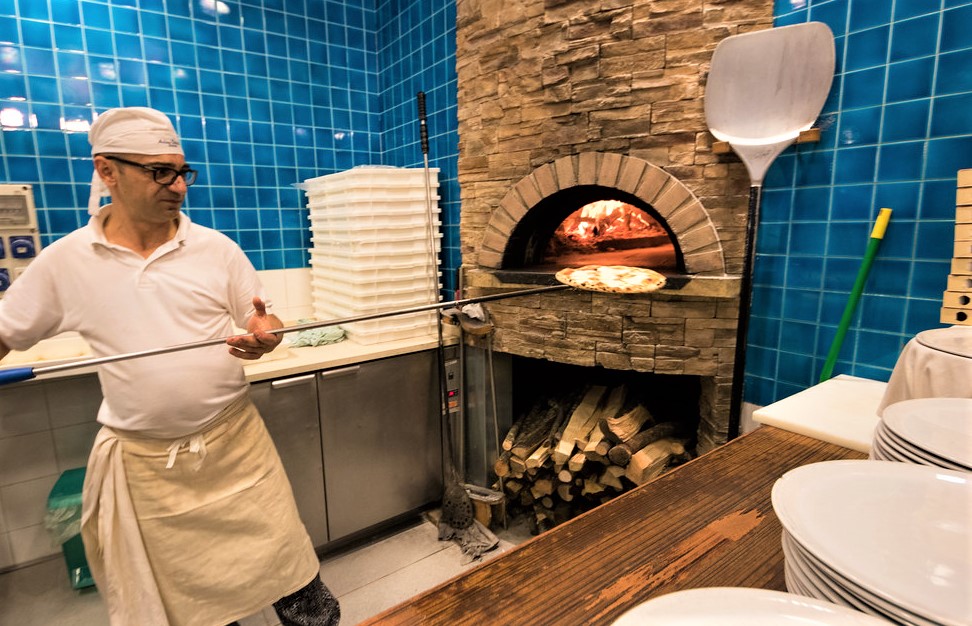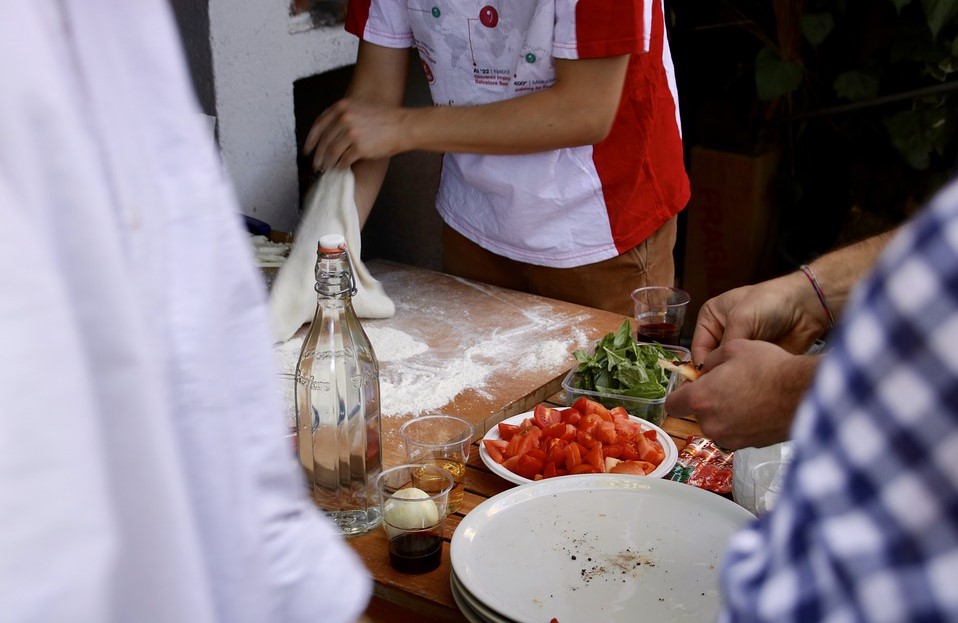Cooking is an art. A culinary tradition is a heritage which needs to be reborn.
This is also believed by UNESCO which draws up a list of heritage of mankind and nature of all the countries of the world. On the one hand the artistic heritage of the monuments made by man, on the other that of the landscape with some territories characteristically linked to some products, such as the Prosecco hills, Langhe or the Tian Mu mountain where tea is grown.

But UNESCO is also drawing up the list of Intangible Heritage of Humanity, that is, that list of local traditions that are part of the intrinsic culture of a territory and, therefore, of humanity.
The kitchen is certainly a very high value heritage and in 2013 it included the Mediterranean Diet among the assets to be saved. But if the Mediterranean Diet comes from the many countries that overlook this sea, Italy has its personal primacy.
In 2017 'the traditional art of Neapolitan pizzaiuolo' became part of the UNESCO list giving an implicit recognition of value to one of the Italian symbols that unscrupulous multinationals were stealing from us.
The art includes all the aspects preceding the tasting of this delicacy: the preparation of the dough, the rotational movement that the pizza creators make to roll out the pizza making it twirl in the air plus cooking in a wood oven. But the heritage also includes the songs, the expressions and the jargon of the pizza chefs.
In a nutshell: our essence of being Italians, the one we grew up with and that we look for when we select the pizzeria where to go for dinner (or take away) . And it is known that this art was born in Naples.
Who does not know that Pizza Margherita was created in Naples with the colours of the Italian flag (basil, mozzarella and tomato) in honour of Queen Margherita?
Since 1998, the Academy of Neapolitan Pizzaiuoli has existed in Naples (I recommend putting the 'u' in the word and Neapolitan is pronounced 'Napolitan') which organizes courses and a World Championship of Pizzaiuolo.
Everything started from an intuition of Alfonso Pecoraro Scanio who was minister of agriculture in Italy in 2000 and who managed to collect 2 million signatures in 100 countries and to involve over 600 'brand ambassadors' to present the candidacy for the UNESCO.
It was a difficult application because never before had traditions related to culinary art been taken into consideration.
Alfonso Pecoraro Scanio, however, had grudgingly seen large American chains, such as Pizza Hut or Domino's Pizza, making such a pressing advertising campaign that the pizza was believed to be American. In fact, some Americans are still really convinced that pizza is their national dish. Maybe it will be eaten more in America than in Italy, but the pizza was born in Naples.
"The recognition of the art of the Neapolitan pizza maker in the prestigious UNESCO Intangible Heritage List is the reaffirmation of a historical tradition that has been a true element of cultural union for our country for centuries. I am really excited about the result because , even if the candidacy was strong and credible, this is a success that is not at all obvious but pursued after years of intense activity and dedication, in order to guarantee the positive evaluation by the UNESCO Committee ".
This has restored dignity to the small artisanal pizzerias which, however, often have not been able to take advantage of it. If pizza is 'culture', artisans must become 'cultural agents' if they want to promote their business and help the growth of a territory.

It means that making pizza must become a real element of promotion of the territory, local products and traditions. It must be a seed of local growth.
Especially now that the coronavirus has forced a large part of the world's population to stay at home and almost everyone has started making pizza in their kitchens, the pizza chefs and the artisans of the small clubs must raise the level of competition and become 'testimonials and storytellers of the area'.
In this way it is possible to stem the problem of the counterfeiting of the so-called 'Italian Sounding', all those products that are called with names that recall the Italian ones but that are produced in other countries. And the #nofakepizza and #nofakefood campaign launched by Alfonso after the success of the UNESCO recognition makes sense.
This has restored dignity to the small artisanal pizzerias which, however, often have not been able to take advantage of it. If pizza is 'culture', artisans must become 'cultural agents' if they want to promote their business and help the growth of a territory.
It is our culture and millennial traditions that differentiate us and make us unique and special. We could build #IlFuturoNelleNostreRadici (#TheFutureInOurRoots) if we only went on a journey to discover our values.
I have not yet seen many businesses or small entrepreneurs exhibit their culture and be proud to perpetrate a tradition that is a symbol of the "Italianness", but I am sure that we are all aware of the value of our traditions and of the successes achieved, just like the UNESCO recognition of the art of Neapolitans piazzaiuoli .
Go and listen to one of Alfonso Pecoraro Scanio's lectures to understand how each territory has its own culinary characteristic that expresses its history. And follow Discoverplaces with the stories of those territories to discover the beauty of our country and find in it the inspiration to start again.









Follow us